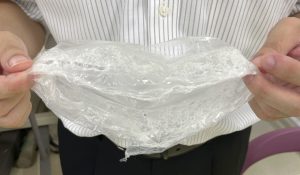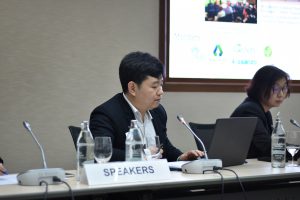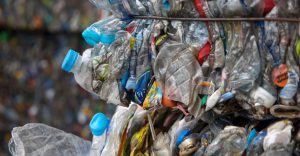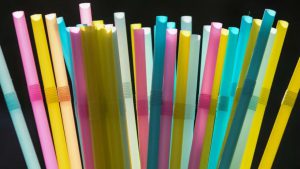A London-based start-up, FabricNano, is developing a system to produce plastics without oil and gas in a bid to make bio-based and sustainable chemicals more commonly available.
The chemical sector is currently the largest industrial consumer of both oil and gas, according to the International Energy Agency.
FabricNano’s bio-manufacturing tech, on the other hand, uses enzymes, a natural catalyst typically made of a protein that accelerates chemical reactions.
“Proteins are these beautiful machinery that are capable of doing chemistry that we find all over nature and all within biology,” said Grant Aarons, the CEO, and co-founder of FabricNano.
“Essentially, a protein can do any material production and any chemical production that we can think of today”.
‘We need better materials’
FabricNano specialises in cell-free biomanufacturing – the process of engineering biological processes outside of a cell to produce a product, biological materials, biofuels and chemicals.
Biomanufacturing uses biological systems such as living microorganisms and enzymes to produce molecules used in the agricultural, food, material, energy, and pharmaceutical industries.
FabricNano argues that using enzymes can break the chemical industry’s current reliance on fossil fuels to make products such as plastics or pharmaceutical drugs.
The company says the production cost for most commodity chemicals including plastics is currently low because the petrochemicals used in the production are cheap.
“In order to attack that you need to make an enzymatic process that approaches those techno-economics,” said Eliza Eddison, co-founder and VP of Operations at FabricNano.
Enzymes are already used to create chemicals and foodstuffs, but designing them to survive in an industrial production process and turn them into plastic, paint or pharmaceuticals without using oil or gas may be some way off.
“We need better materials that are more symbiotic with our way of life on planet Earth. But we do need to make systematic change and we need to have a lot of solutions to solve some of the problems we’re facing today,” Aarons said.








